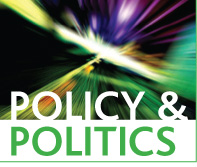Huw Lewis and Elin Royles
The Policy and Politics section of Discover Society is provided in collaboration with the journal Policy & Politics. The section is curated by Sarah Brown.
Recently, the Welsh Government published its new national Welsh language strategy, Cymraeg 2050. This new strategy, a successor to A living language: A language for living, published back in 2012, outlines the government’s vision for Welsh for the next 30 years. Given the commitment in the Welsh Labour 2016 National Assembly election manifesto of seeking to create a million Welsh speakers by 2050, the strategy is an important document that sets a series of ambitious goals. Meanwhile, up in Scotland, Bòrd na Gàidhlig, the official body tasked by the Scottish Government to promote the Gaelic language, recently concluded a process of consulting on the contents of its new National Gaelic Language Plan, the third to be published since 2005.
These developments on the part of devolved administrations in the United Kingdom reflect how efforts to revitalise the prospects of minority languages, by expanding the numbers of speakers and by promoting wider social use, are now increasingly common in different contexts across the world. Examples include efforts in relation to indigenous languages in a number of developing countries (e.g. East Timor, Ecuador), indigenous languages within certain developed countries (e.g. New Zealand, the United States, Australia and Canada) and also regional or minority languages within various sub-state nations. Often, these revitalisation efforts are led by the language communities themselves. However, in an increasing number of cases, particularly across Europe, sub-state governments play a leading role in the process. Indeed, in addition to initiatives in Wales and Scotland, the past decade has seen the publication of official language revitalisation strategies by a range of other European sub-state governments, including Catalonia, the Basque Country and Galicia.
Significantly, these language revitalisation strategies have each been developed against a backdrop of radical social change. The turn from the twentieth to the twenty-first century is regarded as a period of fundamental social transformation, one perhaps unmatched since the onset of industrialization. Societies are now increasingly individualistic, diverse and mobile; their economies increasingly interconnected; and their governance structures are increasingly complex. Furthermore, many of the main factors affecting the prospects of minority languages – the family, the local community, the economy and the level of state support – have been deeply impacted by these patterns of social change.
It is widely acknowledged that instances of linguistic change are closely associated with instances of macro social change. Given this, one would expect contemporary language revitalisation policy programmes to pay attention to the implications of major changes in how people live their lives, how they interact with each other, and, consequently, how they use their language(s). Yet, this does not seem to have been the case. To date, bar some limited examples, there seems to have been little sustained reflection within language revitalisation policy documents on whether our fast-changing social context should prompt a rethink with regard to how the task of language revitalization should be approached.
This was the main finding of our recent article published in Policy and Politics entitled ‘Language revitalisation and social transformation: evaluating the language policy frameworks of substate governments in Wales and Scotlans’. The article drew upon interpretive content analysis methods in order to study in detail a series of key language strategy documents published by the Welsh and Scottish governments during 2000-2015. The empirical evidence gathered as part of this study demonstrated that the documents include some reflection on the potential linguistic implications of certain forms of contemporary social change (with the Welsh documents doing so to a greater degree). However, the vast majority of this reflection centres on the very specific topic of ‘increased use of ICT’. Beyond this, the level of engagement with the implications of other forms of contemporary social changes is extremely limited.
Consider, for instance, some of the following examples. First, despite the emphasis traditionally placed within language revitalisation frameworks on the role of the family in promoting consistent language acquisition, there was little reflection in the documents on the implications of recent changes in the way that families organize their day-to-day lives and care for their children. Second, although territorial communities have been regarded as promoting stable patterns of language use, there was little reflection on the implications of recent changes in the nature of community life and the tendency for patterns of social interaction to be centred increasingly around specific ‘communities of interest’, or even to take place online. Third, though the conventional understanding is that there is a need to ensure that minority languages possess a measure of economic value, there was little serious reflection on the implications of economic globalisation and in particular the advent of skills-based employment.
Examples such as these point, on the one hand to the challenges faced by policy makers working in the area of language revitalisation in ensuring awareness of the nature of globalisation and associated macro social change, and on the other hand, to the possibility that such cognisance may currently be lacking. Furthermore, they raise the possibility that language policy may have been less successful than other, more established, public policy fields in integrating reflection on the implications of social change into policy development.
In an effort to take the discussion forward, a recently established AHRC-funded research network, coordinated by researchers from Aberystwyth University and the University of Edinburgh, will bring together an international group of language policy researchers, along with prominent policy practitioners, in order to examine the implications of current patterns of social change for our understanding of how language revitalisation efforts can be designed and implemented. Over the next two years, the Revitalise network will study this question with reference to a variety of European examples in order to identify lessons that can inform the future work of relevant public officials and civil society actors working in the field of minority language promotion.
Seeking to maintain and revitalise the prospects of a regional or minority language is widely acknowledged as an extremely challenging undertaking. Success, be it in terms of an, can often be elusive. The contention that underlies the work of the Revitalise network is that such successes are likely to be even more elusive without those engaged in language revitalisation increasingly basing their efforts on a sound understanding of how people live their lives today.
Huw Lewis and Elin Royles work at the Department of International Politics at Aberystwyth University and are members of the University’s recently established Centre for Welsh Politics and Society. The Revitalise research network is an AHRC funded research project, coordinated by scholars at Aberystwyth University and the University of Edinburgh, which brings together researchers and policy practitioners from across Europe to discuss the implications of current patterns of social change for efforts to promote the prospects of regional and minority languages. For the latest updates on the network’s activities follow @_revitalise on Twitter or visit the website. This article was revised on 4th August 2017 to take account of the Welsh Government’s publication of its new language strategy.
Image: Adam Partington. Welsh road markings seen near Cardiff Airport, Wales.

